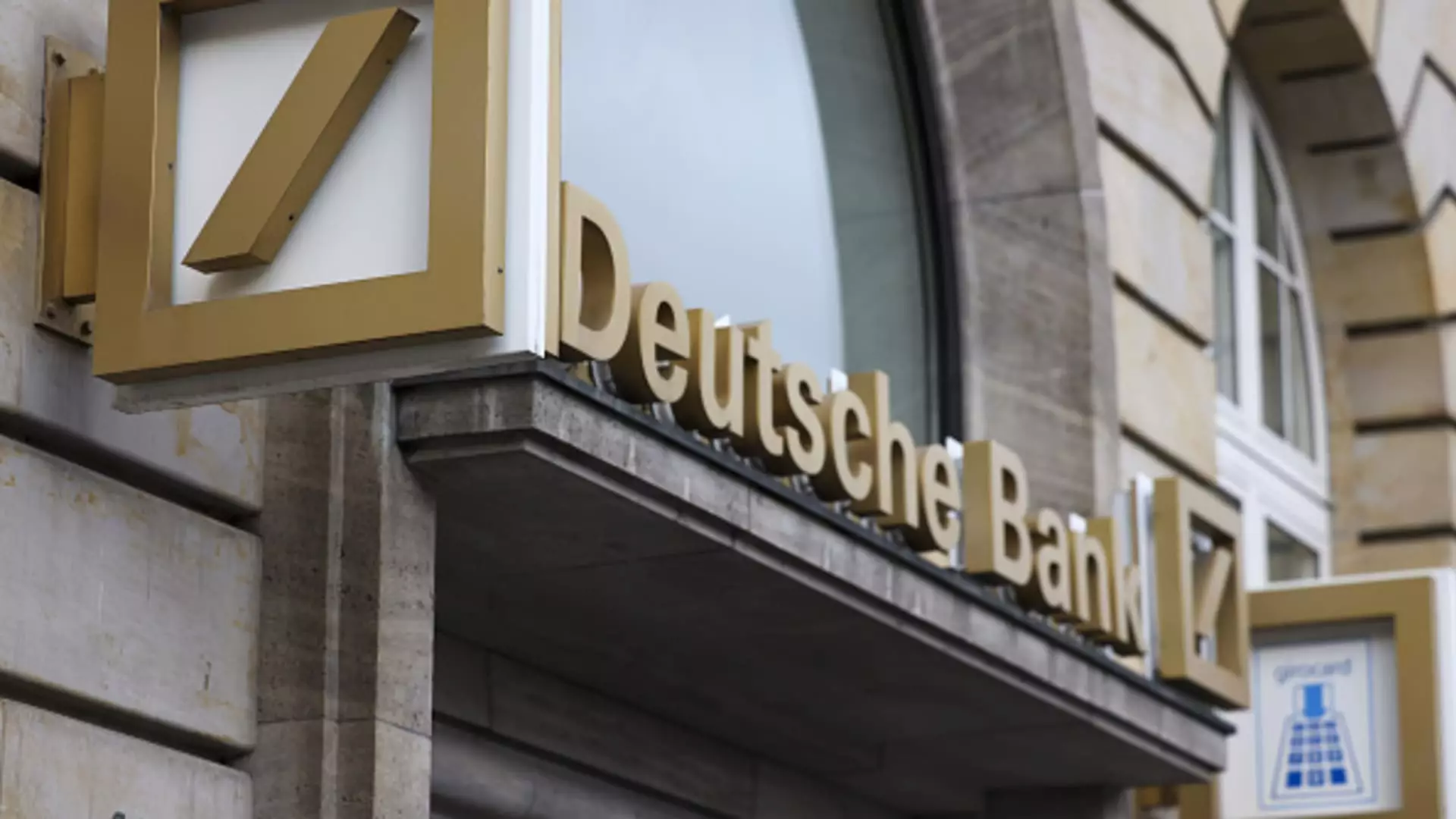Recently, Deutsche Bank, Germany’s leading financial institution, unveiled impressive financial results for the first quarter of the year, demonstrating its ability to thrive in a challenging economic landscape marked by U.S. policy uncertainties. The bank reported a net profit of €1.775 billion ($2.019 billion), reflecting a remarkable 39% increase compared to the previous year and surpassing analysts’ expectations. This outcome reinforces the bank’s position as it continues to bolster its growth strategies, particularly in investment banking.
The surge in profits can be attributed primarily to robust performance in Deutsche Bank’s investment banking sector. By posting €3.4 billion in net revenues, the core division saw a 10% year-on-year increase. This noteworthy achievement signals a departure from Sweden-born challenges, as the bank navigates an environment where traditional banking gains, primarily from loans, are dwindling, and shifts towards investment and capital market activities become increasingly crucial.
Strategic Maneuvering in Investment Banking
Deutsche Bank’s investment banking division emerges as a vital player in its overall growth strategy. Despite facing declines in origination and advisory services, the fixed income and currencies (FIC) unit thrived, demonstrating a 17% increase, reflecting strong demand amidst global market volatility. The foresight to pivot towards investment banking operations has proved fruitful; since the advent of lower interest rates, the need to diversify income streams has never been clearer.
CEO Christian Sewing’s assertion that the financial results keep the bank on track for its ambitious 2025 targets underlines a commitment to navigating through macroeconomic challenges. With continuous adaptation to ever-changing market dynamics, the leadership is strategically positioned to capitalize on favorable conditions and operational strengths. This not only reassures investors but solidifies Deutsche Bank’s role within the European banking sector.
Geopolitical Impact and Provisions for Uncertainty
However, amid this positive news, Deutsche Bank has increased its provisions for credit losses to €471 million, a significant rise compared to the previous quarter. This cautious approach is a measured response to geopolitical tensions and economic uncertainties, particularly as U.S. trade policies continue to unfold. The bank’s proactive maneuvers reflect an acute awareness of potential pitfalls, illustrating a blend of optimism rooted in current performance and prudence regarding future risks. Adopting this dual strategy allows Deutsche Bank to strategically safeguard itself against unforeseen market fluctuations while positioning itself to capitalize on positive developments.
The insights shared by Chief Financial Officer James von Moltke regarding the ongoing uncertainty in financial markets emphasize a balanced outlook. His acknowledgment of hedging against interest rate risks reveals a comprehensive understanding of market dynamics, which should instill confidence in the bank’s targeted growth areas. The substantial percentage of business deriving from the Americas signifies a crucial pathway for growth, especially amidst increasing tensions in global trade relations.
German Banking Landscape: A New Dawn?
The evolving political landscape in Germany further enhances Deutsche Bank’s prospects. With the anticipated stability brought on by a centrist coalition and the signature of landmark fiscal policies, German banks are positioned to gain from an environment conducive to investment and economic growth. These developments appear to align favorably with Deutsche Bank’s strategic initiatives.
The centralization of fiscal policies aimed at boosting defense expenditure promises to trigger a ripple effect of increased investments and renewed investor confidence. Analysts are optimistic that improved sentiment with the incoming government can galvanize the economy, presenting opportunities for the corporate bank as well.
As Deutsche Bank navigates the complexities introduced by U.S. tariffs and shifts in trade policy, the potential for stronger equity markets within Germany suggests a revitalization of confidence among investors, enabling the bank to look ahead with greater assurance.
Future Horizons: Confidence Amidst Challenges
Despite external challenges, Deutsche Bank’s forward momentum is evident. Corporate finance, credit trading, and M&A services remain focal points for growth. The bank’s strategic focus on delivering value and maintaining an expense discipline reflects a robust approach to achieving its targets. Furthermore, by enhancing its foothold in investment banking, Deutsche Bank is branching out into areas that not only assure immediate profitability but also promise sustainability in an ever-evolving economic landscape.
In the coming months, the confirmation of growth potential, particularly in the corporate banking sector, will be paramount. The attention on fiscal changes indicates that Deutsche Bank is uniquely positioned to leverage shifting policies while remaining resilient against uncertainty. The commendable performance in the first quarter showcases the bank’s strong adaptation strategies, which will undoubtedly set the stage for continued success in the fast-paced world of global finance.

